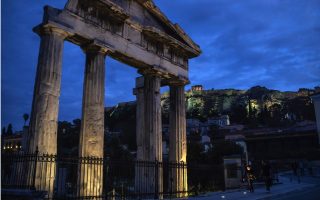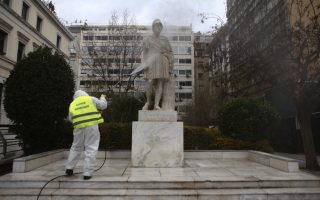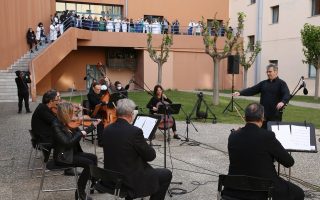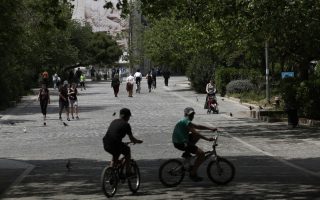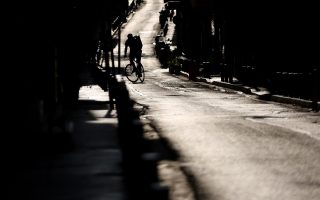We are all refugees now
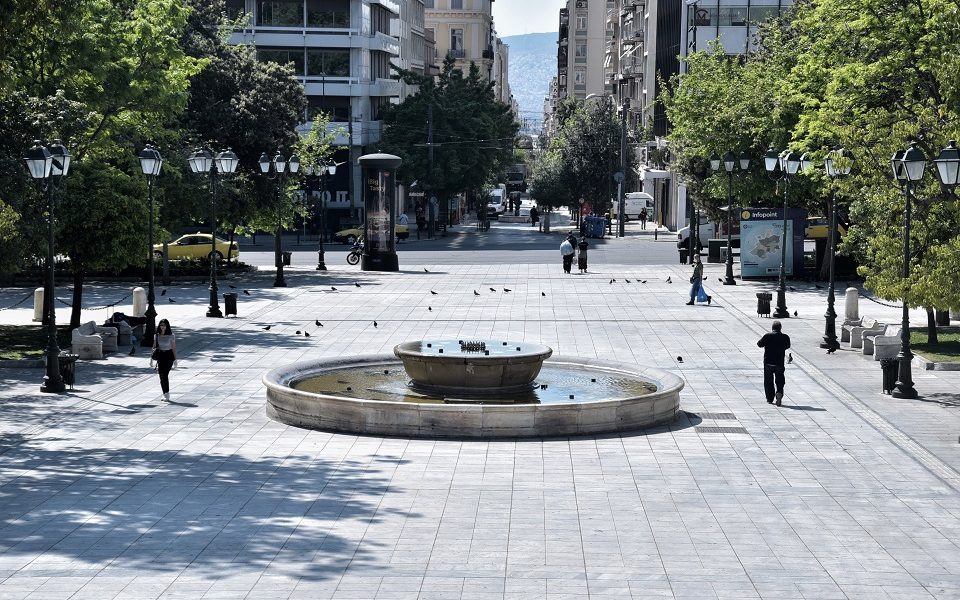
It is the silence which makes life so different. The silence in the village. The silence in the town. The silence in the city. It bewilders and it disorients. It seems that life is suspended, unreal, immaterial. Everything that should “happen” normally isn’t “happening” at all.
Sigmund Freud wrote about the “uncanny” – an often misused word. Here, its meaning is only too relevant: a situation where what seems to be foreign to us is in fact all too familiar. It cannot be explained by logical thinking. How a bat or a pangolin in a remote Chinese fish market could become a volatile worldwide killer of hundreds of thousands – possibly even millions – is a bizarre enough folk tale. But the bat – or its legacy – is here in our homes, impervious to detection, defeat or denial.
I pass cafe after cafe which should be bright with laughter, dispute and the clacking of backgammon counters in portes, plakoto and fevga: contests of mind and body which are now banished from the streets along with the camaraderie, and the wisdom and commerce of everyday life.
The places where many people – mostly men – spend half the day, the kafeneions, are “closed for virus.” The places where many people – mostly women – spend half their life, the kitchen and the terrace, are now transformed into a waiting room, noisy with children and menfolk disturbing the quiet conduct of family life. Video games, PlayStations, the constant “Why can’t I go out and play?” Only the solace of the Easter Vigil broadcast so ironically into your own home created a sense of togetherness.
There is only one kind of place where people still congregate and where silence, like social distancing, is impossible: the refugee camps where our unwanted guests still have a claim on our hospitality and our understanding.
I recently read this account of conditions on Lesvos:
“Round every corner, in every small open space, by the roadside, in the fields, beneath the olive trees, even on the beach by the water’s edge, there were the refugees. They were not allowed inside the public gardens, but they clung to the rails all round them or sat huddled on the pavement in such swarms that they somehow lost their humanity and turned into a semblance of locusts. There was nowhere one could walk but a small emaciated hand would pluck at one’s sleeve and point mutely to an empty hungry mouth.”
“It was those emaciated little hands which touched one timidly in passing that harrowed the mind most of all,” the author wrote. “Nobody who looked upon such refugees could ever again preserve a cold and judicious attitude towards the problems of the Levant.”
These are not today’s refugees. They are not even the refugees from Anatolia in 1922. They are refugees from Turkish hostilities in 1916, during the first world war, of which Greece was not yet part. They were written by a Scotsman, Compton Mackenzie, later to become a world-famous novelist. At that time he was serving in British intelligence, trying to persuade the Greek government out of its neutrality and into the war on the Allied side, and committed to protecting Eleftherios Venizelos and his supporters from the aggression of the royalists.
But conditions in 1916 are similar to those in Lesvos today and, more significantly perhaps, a symptom of that uncanny, bizarre presence, in our homes, of the unknown, that which we fear and cannot understand.
Mackenzie pitied these refugees from warfare, as we pity today’s seekers of asylum. He wrote that his boat “picked up a woman with a baby at her breast floating in a washtub far out on the moonlit water. Here was Danae with the baby Perseus. King Acrisius had sent them floating out to sea in the hope that neither would be heard of again.”
It’s easy to be sentimental and identify a pathetic refugee with a figure of myth. Yet we have constructed our own mythology around both the refugee crisis and Covid-19, just as we allowed ourselves to reinvent the country after the economic crash and just as Greece will have to be repackaged for tourists after this.
We may not welcome the refugees unreservedly, but we recognize them because, like us now, they are unhoused – dislocated, disoriented, lacking not only a kafeneion but even a kitchen table where they can focus their fear and bewilderment.
And what does that tell us about the similarity: they in their cacophony, we in our silence, our unexpected, unrecognizable, unimaginable condition? Covid-19 shows us that we are all refugees now.
Richard Pine is director of the Durrell Library of Corfu and author of “Greece Through Irish Eyes.”
